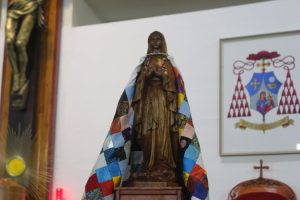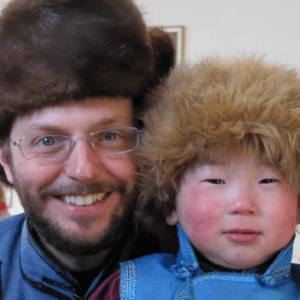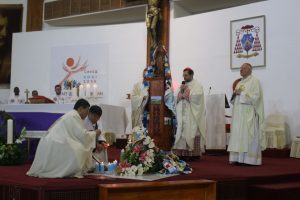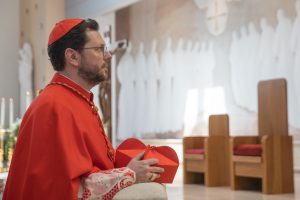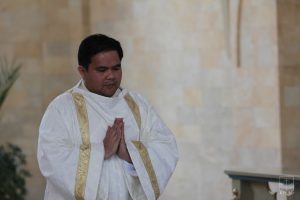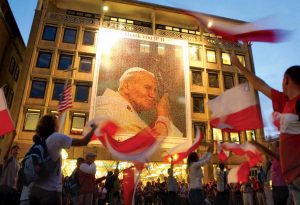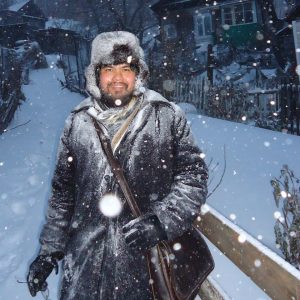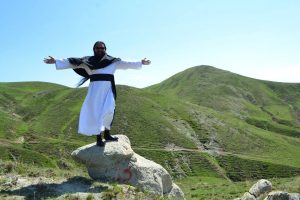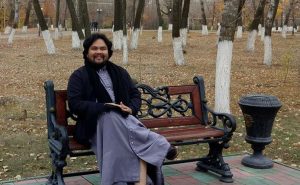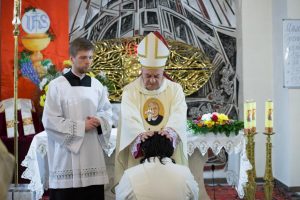How long have you been serving in your region?
Well as a missionary, I have been serving the church in Mongolia for the last 19 years. I arrived for the first time in 2003. But then only in the last two years, I took up the task of serving the church as a bishop and Apostolic prefect.
What are the positive things about the Catholic Church in your country? How does the society feel about the existence and activities of the CC?
I would say that the positive aspect of the Catholic Сhurch in Mongolia is that it resembles to a little seed as Jesus described the Kingdom of God as something small little, but with a power of transforming the society. Even though we don’t have any sign of external transformation we like this comparison of the Church as a small flock into a society which has completely different references in other religious traditions and another thought, but this is the beauty of being the church in Mongolia, to serve the Kingdom of God from that perspective. So humble witness and prayerful life and a life of service. And maybe it is especially through the life of service that the population that large they might have had some contacts with the Catholic Church because the Catholic Church is very much involved in the social programs, in educations, in assistance, even in a healthcare. So, in terms of these projects the Catholic Church is well respected in Mongolia.
Are there any unique experiences (projects) that may be interesting for application in other countries of the Bishops’ Conference?
I think so. Our projects can be supported, and they need to be supported from abroad. Because we don’t have enough resources internally. And they all go in line with serving the society in the sectors that I mentioned before: education, social assistance, health, and interreligious dialogue. We try our best to promote the culture of mutual understanding and peaceful coexistence and collaborations among the different religious traditions. And I’m sure that the newly established Episcopal Conference of Central Asia can be interested in being involved in such programs because they can truly manifest the identity of Catholic Church.
What challenges do the Church and Christian believers face in your region? How do you assess relationships with the state?
May be one of the main challenges is the fact that to become a Catholic is not something considered so normal. You have to be very determent and courageous to take this life decision. Because as I said the large majority of the people there have other religious traditions, so may be the decision of an individual to embrace the catholic faith can easily encounter misunderstanding in the family or sense of suspect within the circle of the friends and family members. That would be I think the major challenge because of the newness in a way of the catholic faith. Though history tells us that the christian faith has been present in Mongolia for at least 1 000 years. For several reasons it never penetrated in such a way to become a popular religion. Other challenges that may be found in running our activities we do find sometimes some bureaucratic problems or hindrances to our activities, though we have very positive and fruitful collaboration with the local authorities.
What do you expect from the United Catholic Bishops‘ Conference of Central Asia. What tasks do you consider to be the main ones? Is it important to develop dialogue and exchange of experience between Churches in different countries, and why? How will this help you in your ministry?
First and foremost, I am very happy to have a border circle of brothers especially elder brothers which much more experienced than me that I’m sure would help me to serve church in a better way because being quite isolated there I fell the necessity of sharing our experiences at the border level. And this would be for sure a good advantage of this newly established episcopal conference because if we look at history and cultural similarities, we find lots of common aspects in all our countries though there are also some differences. This aspect of communion getting together to reflect, to share our experiences, to pray, to discern together for sure in line with the insistence of Pope Francis on a discernment and synodality would be definitely a good advantage. And may be some of the tasks that we have to take together they refer to our respective places and the pastoral decisions or plans that we may take and implement but having reflected them and discern them together as a body and not individually that would be I think a very good point for us.
Can this step by the Vatican be regarded as a statement of the successful development of the CC in the Central Asian region?
I guess yes, I think the very fact that the Holy See has already approved the constitution of this new episcopal conference is the sign that those who are in charge of the universal care of the Catholic Church they see something positive in this project and I hope that with their help and communion with them we can develop common strategies and intensify our episcopal communion that really brings a lot of positive consequences to our own respective places.
What are your hopes for the visit of Pope Francis to Kazakhstan? How timely and relevant is this visit?
I have great expectations and I’m quite sure that this visit will mark an important step in the life of the Church in Kazakhstan and in the whole region around. I’m very pleased to see the great tradition of Kazakhstan of bringing people together and developing a sense of promoting peace and harmony and mutual respect in a difficult moment for the obvious reasons as we all know. In this moment the visit of the Holy Father in such a beautiful country with these traditions of multireligiousity and fruitful collaboration would be a sign, I think, from the Holy Father that this is definitely a good model for everybody to follow. And I do hope that this visit will also influence positively the other countries in the same region including Mongolia though we are a little bit far but I hope that this visit will represent a good example of how the Catholic Church reinvests on the interreligious dialogue, on mutual collaboration with people of different faiths and I’m quite sure that the Holy Father will capitalize on that because we know him to be a hero of this peaceful and harmonious coexistence of different people and religions.
One advice you can give to a believer on how to remain a Christian, keep the faith, and deal with the challenges of today’s world?
I think I would invite that friend to develop, to intensify his or her personal relationship with Christ, because our faith is not based on ideologies or philosophies, it is based on a living relationship with the living God. So, in a world in which we are tempted to be divided into different opinions and to follow different models that not always bring life, I think the key point is to intensify and to deepen our personal relationships with Christ. That would be the anchor that really keeps us united with Him and with His Holy Church, because only when we will taste and see how good is the Lord we can remain faithful to Him, we can help other people to know Him.
